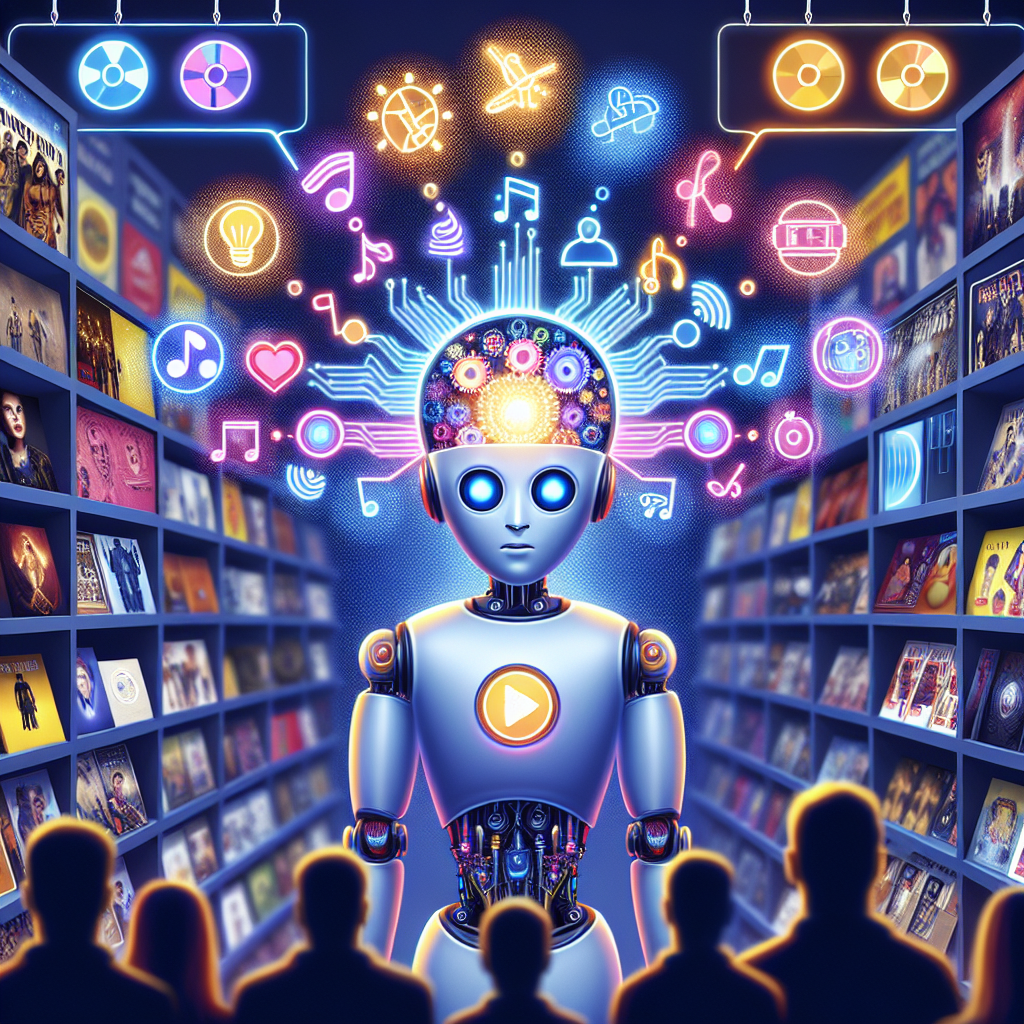AI-Powered Personalized Merchandising in Entertainment
In today’s fast-paced digital world, the entertainment industry is constantly looking for new ways to engage with its audience and increase revenue streams. One such innovation that has been gaining traction in recent years is AI-powered personalized merchandising. By leveraging artificial intelligence technology, entertainment companies can tailor their merchandising offerings to each individual customer, maximizing sales while enhancing the overall fan experience.
What is AI-Powered Personalized Merchandising?
AI-powered personalized merchandising is the use of artificial intelligence algorithms to analyze customer data and behavior in order to recommend personalized products and offers. This technology allows entertainment companies to create a more tailored shopping experience for their customers, increasing the likelihood of making a sale.
How Does AI-Powered Personalized Merchandising Work?
AI-powered personalized merchandising works by collecting and analyzing data from various sources, such as customer purchase history, browsing behavior, and demographic information. This data is then used to create personalized recommendations for each customer, such as suggesting relevant merchandise based on their past purchases or preferences.
For example, if a customer has previously purchased a t-shirt from a particular movie franchise, the AI algorithm may recommend other merchandise from the same franchise, such as hats, posters, or action figures. By tailoring the merchandising offerings to each individual customer, entertainment companies can increase the likelihood of making a sale and enhance the overall shopping experience.
Benefits of AI-Powered Personalized Merchandising
There are several benefits to using AI-powered personalized merchandising in the entertainment industry. Some of the key advantages include:
1. Increased Sales: By offering personalized recommendations to customers, entertainment companies can increase the likelihood of making a sale. Customers are more likely to purchase products that are relevant to their interests and preferences, leading to higher sales and revenue.
2. Enhanced Customer Experience: Personalized merchandising creates a more tailored shopping experience for customers, making them feel valued and understood. This can help to build customer loyalty and increase repeat purchases.
3. Improved Marketing Efforts: AI-powered personalized merchandising can also help entertainment companies to better understand their customers and target them with more relevant marketing campaigns. By analyzing customer data, companies can identify trends and preferences, allowing them to create targeted marketing strategies that resonate with their audience.
4. Cost-Effective: AI-powered personalized merchandising can help entertainment companies to optimize their merchandising offerings and inventory management, reducing costs and increasing efficiency. By only stocking products that are likely to sell, companies can minimize waste and maximize profits.
Challenges of AI-Powered Personalized Merchandising
While AI-powered personalized merchandising offers many benefits, there are also some challenges and considerations to keep in mind. Some of the key challenges include:
1. Data Privacy: Collecting and analyzing customer data raises concerns about data privacy and security. Entertainment companies must ensure that they are compliant with data protection regulations and that they are transparent with customers about how their data is being used.
2. Accuracy of Recommendations: AI algorithms are only as good as the data they are trained on. Companies must ensure that they have high-quality data and that their algorithms are constantly being refined and updated to provide accurate recommendations.
3. Customer Trust: Personalized merchandising relies on customers trusting that their data is being used responsibly. Companies must be transparent with customers about how their data is being used and give them the option to opt out of personalized recommendations if they choose.
4. Implementation Challenges: Implementing AI-powered personalized merchandising can be complex and time-consuming. Companies must invest in the right technology and expertise to ensure that their algorithms are working effectively and delivering value to their customers.
FAQs
Q: How does AI-powered personalized merchandising benefit customers?
A: AI-powered personalized merchandising benefits customers by offering them tailored recommendations that are relevant to their interests and preferences. This creates a more engaging and personalized shopping experience, making customers more likely to make a purchase.
Q: What types of data are used in AI-powered personalized merchandising?
A: AI-powered personalized merchandising uses a variety of data sources, including customer purchase history, browsing behavior, demographic information, and social media interactions. This data is analyzed to create personalized recommendations for each individual customer.
Q: How can entertainment companies ensure data privacy when using AI-powered personalized merchandising?
A: Entertainment companies can ensure data privacy by being transparent with customers about how their data is being used, obtaining consent for data collection, and implementing robust security measures to protect customer data.
Q: What are some best practices for implementing AI-powered personalized merchandising?
A: Some best practices for implementing AI-powered personalized merchandising include investing in high-quality data, constantly refining and updating algorithms, being transparent with customers about data usage, and providing customers with the option to opt out of personalized recommendations.
In conclusion, AI-powered personalized merchandising is a powerful tool that can help entertainment companies to increase sales, enhance customer experience, and improve marketing efforts. By leveraging artificial intelligence technology, companies can create a more personalized and engaging shopping experience for their customers, leading to increased revenue and customer loyalty. While there are challenges and considerations to keep in mind, the benefits of AI-powered personalized merchandising make it a valuable investment for the entertainment industry.

